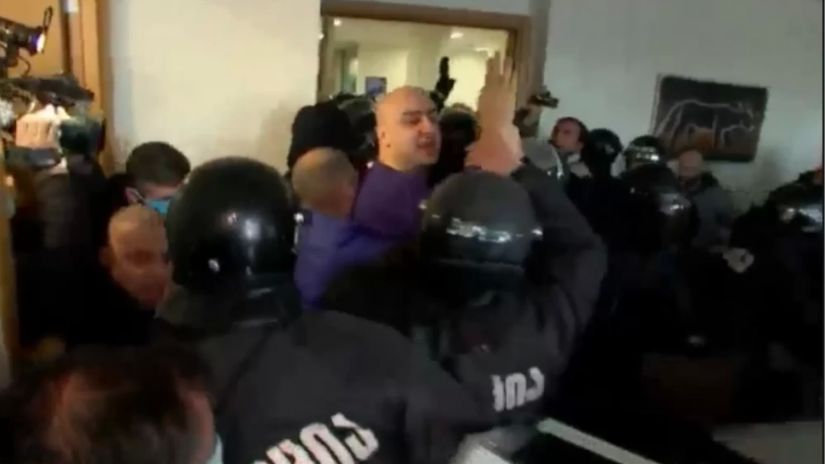
EDITORIAL
When parliament nominated hardliner candidate Irakli Gharibashvili as prime minister, he dedicated his speech not to defeating the pandemic, not to the economy, occupation or social problems, but to fighting political opposition.
After Melia’s arrest, the newly appointed PM thanked the police for their “successful operation”. Similar statements were made by senior state officials. However, this step was sharply negatively assessed by the representatives of Georgia’s friendly countries, who called the incident a step backwards on the path of Georgia’s Euro-Atlantic integration.
Naturally, the question arises where the government’s red line is – beyond Melia’s case, in the depths of democracy?
We’ve got a situation where the government is unable to win over the opposition by arresting Melia. Instead, he is assumed by many in Georgia and abroad to be a victim sacrificed to the idea of freedom. In addition, the opposition deserved support and compliments from outside the country.
At the same time, the opposition is not satisfied, as the prediction some of them made about the collapse of the government did not materialize. They saw that they might find themselves in Melia’s place tomorrow, which could naturally become an added impetus to escalation.
It’s clear now that the political struggle has been shaped as a pure zero sum game. Termination of this game is possible only with the weighty arguments proposed by heavy actors. The logic of the country’s interests invokes that there is no alternative to reaching an agreement through negotiations.
The sides must put on the negotiating table proposals that will be acceptable for all major political actors and society as a whole.
The basis of the agreement may be the appointment of early elections in conjunction with electoral reform. In contradiction of a deeply entrenched tradition in Georgian politics, early elections are generally not perceived as tragic in democracies, moreover, it is an effective means of easing political crises. However, the demand for early elections in Georgia stems from the fact that the elections were rigged. Putting the issue this way is categorically unacceptable to the ruling power.
Another counterweight model for early elections can be re-distribution of power between the ruling power and the opposition. We mean real power-sharing – i.e. the transfer of part of the power into the hands of the opposition. For example, this could apply to legal or parliamentary institutions, and control of public finances. This means that the opposition will have real, strong leverage, which is not only important for them, but also strengthen its fragile democratic system.
Otherwise, a continuation of the current trend will inevitably deal a big blow to Georgia, its citizens, and its Euro-Atlantic perspective.
It will be important to utilize the potential of civil society in the negotiation process. The country deserves to have its future determined by broad agreement. The country is not an arena of confrontation between gladiator politicians.

